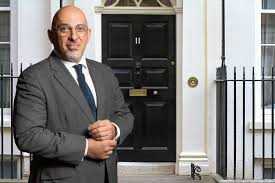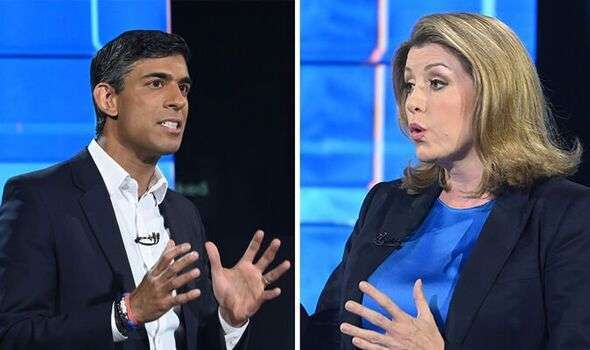
Conservative Party Chairman Nadhim Zahawi has been sacked by Prime Minister Rishi Sunak, as a result of an independent advisor report which was drawn up following an investigation into Mr Zahawi’s personal financial declarations. He had been under pressure to resign for several weeks, and now Sir Laurie Magnus, who was tasked with conducting the enquiry, has concluded that there was a serious breach of the Ministerial Code.
A letter send by the PM to his out-going party chairman thanked him for his service, and even praised his achievements, stating that he should leave with pride at what he had accomplished. A letter of response from Mr Zahawi offered no apology for his actions, choosing instead to reflect upon his own successes; reference the interference of the media into his affairs; and promise to support the government moving forward, albeit from the backbenches.
Unwanted spotlight on leading government figure
Nadhim Zahawi’s finances have been in the spotlight pretty much since the turn of the year and have been causing all manner of problems for Mr Sunak, with accusations of weak leadership being aimed in his direction. Much of it centred around Mr Zahawi’s tax affairs in which he admitted paying a substantial penalty to HM Revenue and Customs (HMRC), whilst holding the role of chancellor, and failed to declare his situation to his bosses.
Ethics advisor produces damning report
The PM asked Sir Laurie, his ethics advisor, to look into the matter thoroughly and has acted immediately after receiving a damning report, which left him with little alternative than to remove Mr Zahawi from office.
Amongst the findings, Sir Laurie concluded that the sacked chairman should have understood the serious nature of the investigation being conducted against him by HMRC, which was an obvious conflict of interests he deduced, rather than the chairman’s version (that he gave in his declaration of interest form upon appointment to chancellor), which was that he just answered a few basic queries.
He also said Mr Zahawi showed insufficient regard for the principles that ministers are expected to follow.
PM goes easy on colleague in letter
Richi Sunak said in his letter to his sacked party chairman that he was following a pledge he made when being appointed PM, which was to lead the government with integrity, professionalism and accountability at every level. That, he said, was why after receiving new information he called for the Independent Adviser on Ministers’ Interests to fully investigate the matter.
He pointed out that Mr Zahawi understood this, and was indeed in full of agreement of the action. He underlined that it was clear that there had been a “serious breach of the Ministerial Code” and as a consequence, he had no option but to remove him from his position in His Majesty’s Government.
With the serious business attended to, he then chose not to remonstrate with his former colleague, but instead went on to write that Mr Zahawi should feel extremely proud of his “wide-ranging achievements in government over the last five years.” Specifying his role in the Covid-19 vaccine procurement and deployment programme, which he said: “Ensured that the United Kingdom was at the forefront of the global response to the coronavirus pandemic.” He stated that because of his actions many people’s lives had undoubtedly been saved.
He went on to highlight how he had significantly restructured Conservative Campaign Headquarters and “Readied us for important work in the coming months.” Continuing, Mr Sunak praised his departing chairman for the services he provided both him and his predecessors, as a Kurdish-born Iraqi refugee at the highest levels of the UK government; before finishing by acknowledging that he knew that he could count on his continued support as he “passionately and determinedly serve your constituents of Stratford-on-Avon and represent the many issues and campaigns you are dedicated to.”
No apology forthcoming from Mr Zahawi
In a rapid response, Mr Zahawi spoke of it being a privilege to serve in successive governments and make a tangible difference to a country that he loves. This he pointed out was after fleeing persecution and arriving in the UK speaking no English – he had fled Iraq during Saddam Hussain’s regime.
Offering no apology, he focused on reflecting the pride he felt at building his own successful business, his part in the Covid vaccine roll-out, and his organisation of the mourning period for the nation, following the death of Queen Elizabeth II.
He claimed that in no other country “would such a story be possible.” He ended by confirming his on-going support for the government.
Backbenches beckon
So what could be next for the ousted chairman? He will automatically lose the £70,000 additional pay that Cabinet ministers receive, on top of their basic MP salaries; but he will remain the serving Conservative MP for Stratford-on-Avon, a post he has held since 2010 and as a backbencher now, his role will switch to debating and voting on party policy.
Who is advisor responsible for the report?
Sir Laurie Magnus, the man essentially responsible for Mr Zahawi’s removal, is a veteran banker, appointed by Rishi Sunak only in December 2022, to be his adviser on ministerial behaviour. He probably did not expect to have to be involved in such a serious investigation within the first few weeks of being installed.
He was educated at Eton College and went to Oxford University, but his background definitely lends itself to an enquiry of this nature, as he has worked in financial services for more than 40 years and is a senior adviser at an investment banking group.
Heritage is his other great passion and was the former deputy chairman of the National Trust, before being appointed chairman of Historic England in 2013. He was awarded a CBE in the 2022 New Year’s Honours list of the late Queen Elizabeth II, for “services to heritage”.
New chairman needed
It is unlikely that a new Conservative chairman will be found immediately. There is it has been reported from Downing Street, “no timeline at the moment” for appointing a replacement. This Number Ten say, is because the PM wants to ensure that the right person is installed into the position.
This will involve taking into account the different factions in his party at present and as a consequence, having to decide who would be in the best place to get the party on a sound election footing, with a view to a General Election at some point over the next two years.





0 Comments